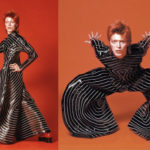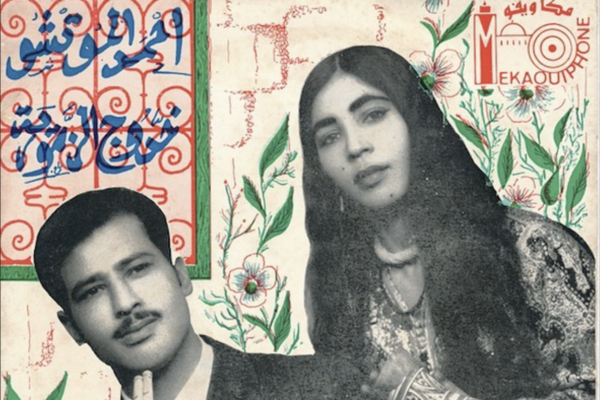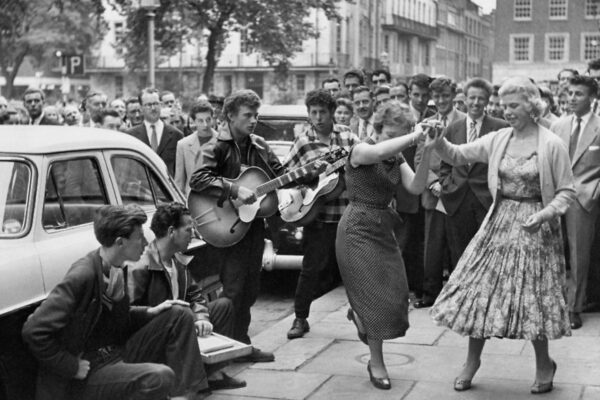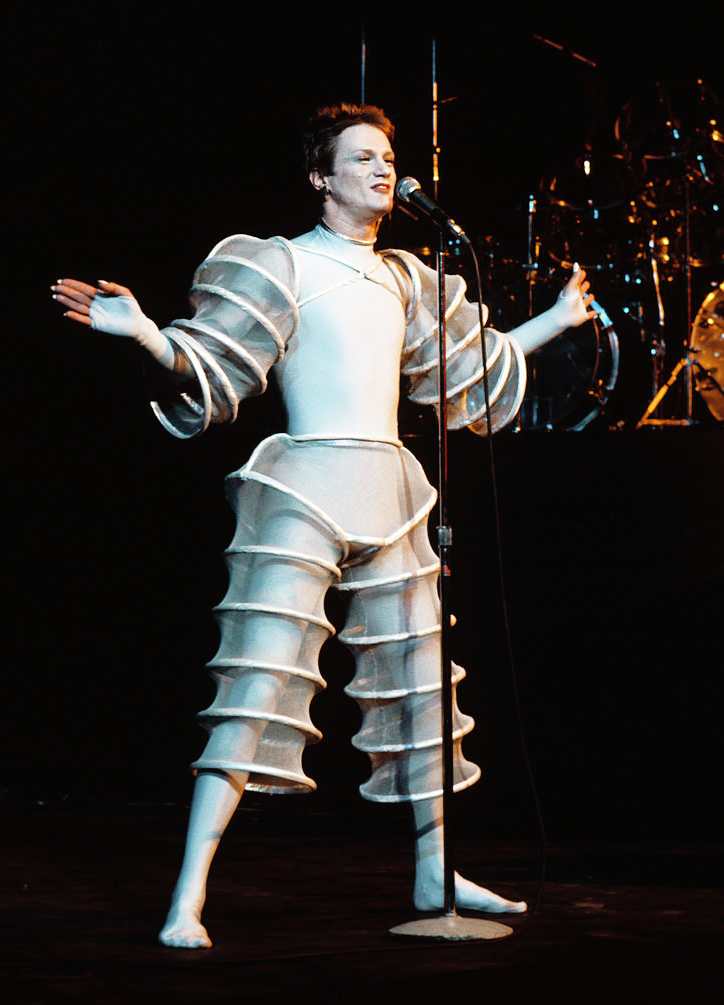
He was the first openly gay rock musician to be signed to a major record label, declaring himself “glam rock’s truest fairy” to slack-jawed media critics and listeners alike. Touted as America’s successor to David Bowie, he was signed to Elektra Records for $500K and for a brief New York minute in the early 1970s, became the most visible homosexual figure in popular music. Everything about Jobriath screamed glam rock: the outfits, the theatrics, the vocal range, but in the end, he was destined to be the greatest glam rock star that never was. In celebration of his lost legacy, we’re revisiting his story – and finding some choice holiday tribute looks along the way…
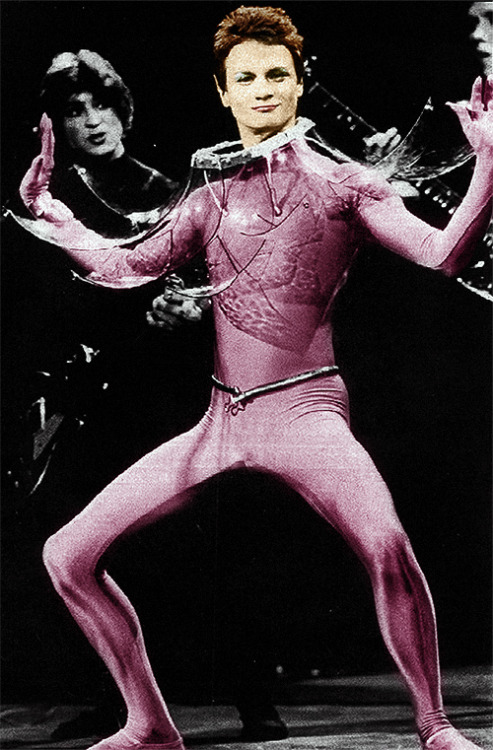
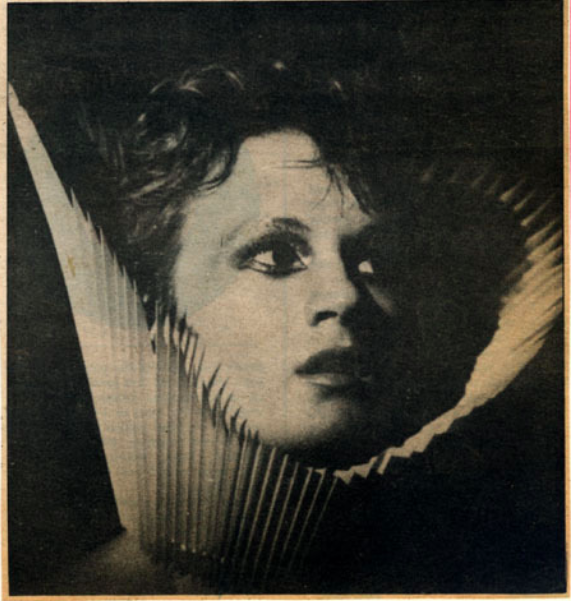

From whence did this glittery space cherub arrive?! In the beginning, Jobriath was born Bruce Wayne Campbell from King of Prussia, Pennsylvania. He was a prodigal pianist, composing his own symphony movements in high school and dreaming of making it big. First, he did the folk music thing. Then he did the going-AWOL-from-the-draft thing, moving to Los Angeles and changing his name to “Jobriath Salisbury.”
He was a natural for musical theatre, and was cast as “Woof,” a beloved (and implied) gay character in a 1969 production of Hair.
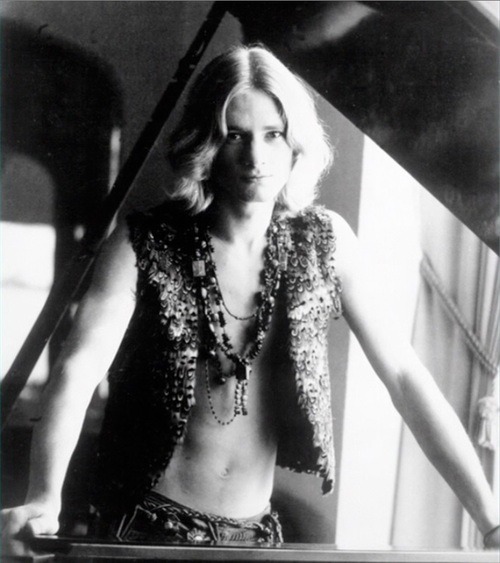
Meanwhile, glam rock was finding its footing overseas in David Bowie, whose 1972 Ziggy Stardust debut coincided with Jobriath’s own discovery by Jerry Brandt (Carly Simon’s former manager). Brandt was certain he could fast track the kid for stardom – this time, rebranded as “Jobriath Boone” – and put the wheels in motion for a massive, majorly promoted launch of his first album. The sound was theatrical, and totally glam rock. There was a billboard in New York’s Times Square, and full-page ads in Vogue and Rolling Stone with the man of the hour looking like a fallen, Greco-Roman deity from outer space.
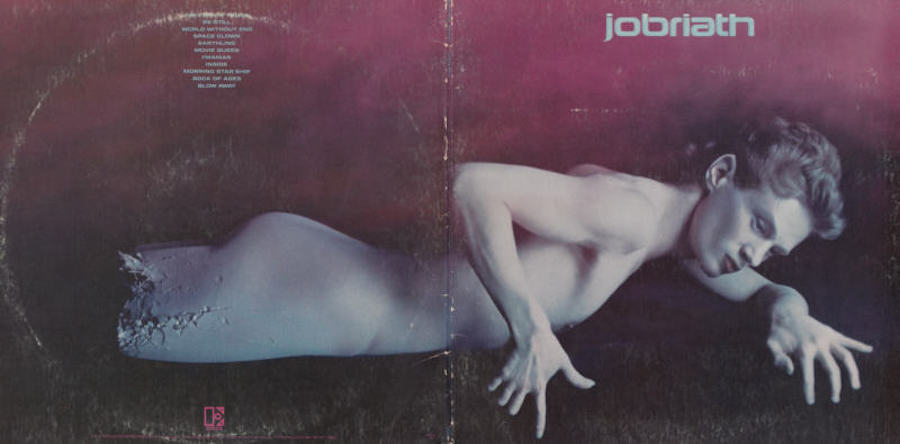
That’s when things started taking a turn. Some claim Brandt’s aggressive promotional strategy built too much hype around the young artist; “Elvis, the Beatles, and Jobriath,” he used to say. No pressure.
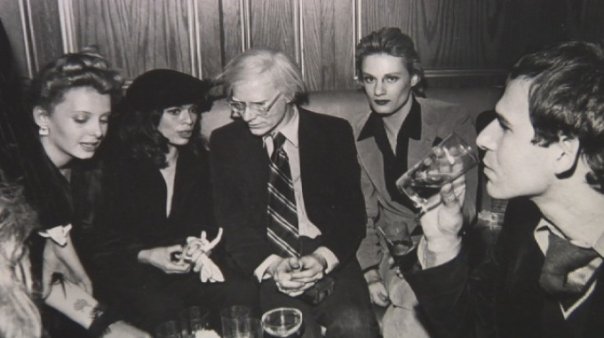
Jobriath also had fun with the seemingly impossible hype. There were plans to have his debut held over a three-night period at the Paris Opera house, which he said would feature him as “King Kong being projected upwards on a mini Empire State Building. This will turn into a giant spurting penis and I will have transformed into Marlene Dietrich.” (The Opera House cancelled).
And as for the sound? Jobriath was actually garnering positive reviews on the album, for which Peter Frampton is also credited. Rolling Stone said he had “talent to burn” and Record World called him a “renaissance man” making “brilliantly incisive” songs. You be the judge:
Not everyone was sold – including Bowie. In an interview with MOJO magazine in 2002, he brings up Jobriath, partially to state that he thought his approach to glam rock was too pastiched. “Very strange guy,” he said, “he was at like every concert when I first went to the States, my number one fan.”
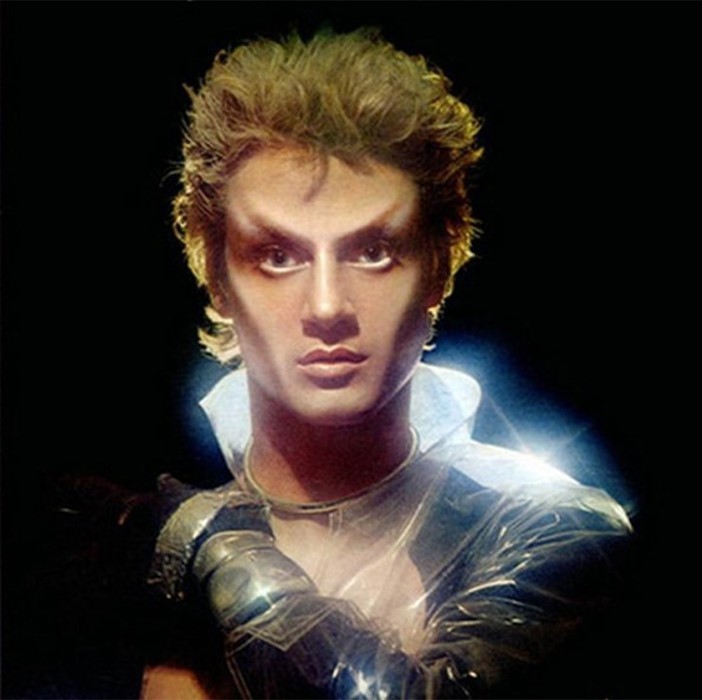
While David Bowie famously had Kansai Yamamoto (RIP) design his costumes, Jobriath’s looks were fashioned by New York City designer Stephen Sprouse, a regular at Andy Warhol’s Factory and a man credited for bringing the “uptown sophistication in clothing with a downtown punk and pop sensibility” in the mainstream in the 1980s.
Interesting to note that Jobriath did get into Pierrot dress a few years before Bowie. Here he is as his space clown look in the 1970s:

And Bowie, in his iconic 1980 Ashes to Ashes look:
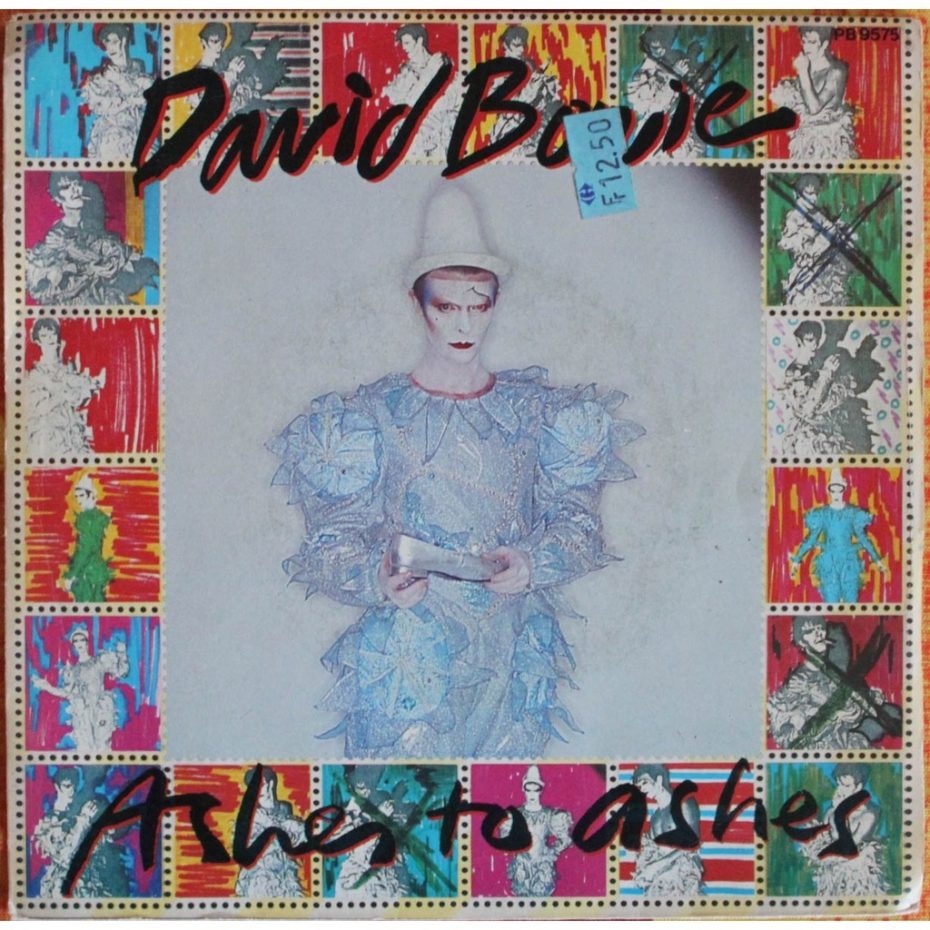
Everything hit the fan when he called himself glam rock’s “truest fairy.” Remember folks, this was the 1970s – about half-a-century ago now! And despite the fact that the likes of Bowie, Marc Bolan, Freddie Mercury and company were flamboyant, they were not identifying their aesthetic as an extension of actual queerness. Even Elton John didn’t fully come out until the 1980s. Jobriath, on the other hand, made it clear that a celebration of his theatrics and music was a celebration of his gayness. In the 2012 documentary, Jobriath AD, (narrated by Henry Rollins, no less) the rock star says, “There’s a lot of people running around putting makeup on because it’s chic. I just want to say that I’m no pretender.” It was the explicitness, not the aesthetic, that was groundbreaking.
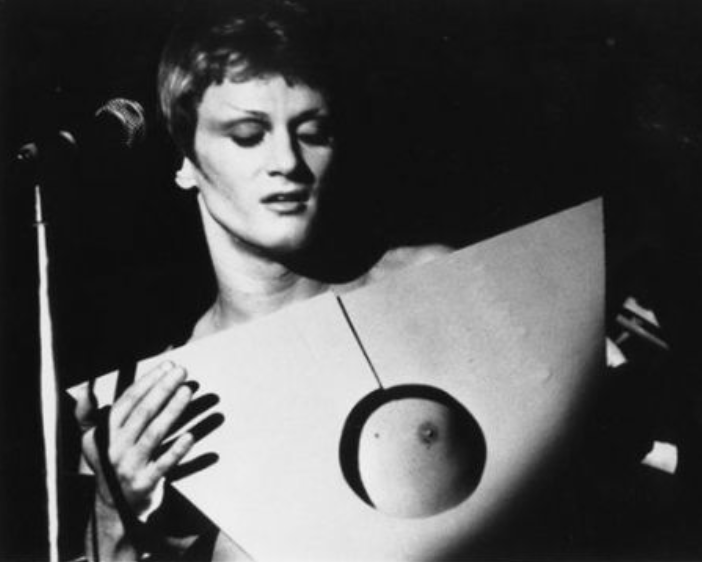
But the business of music is oh so fickle, and was especially cruel to Jobriath. “The world wasn’t ready for him”, some will say. Others blame the unoriginality of his music, labelling him “a record label’s attempt to manufacture a Ziggy Stardust”. His live shows were mostly cancelled, and he had no top hits. So he did what one does: proclaimed retirement from the whole industry, holed up in a rooftop pyramid apartment in New York’s Chelsea Hotel, and rebranded himself as a cabaret singer. This time, the name was “Cole Berlin.”
There’s a wonderful, if not melancholy archive video of him performing one of his songs at the Chelsea – a diddy called “Sunday Brunch” that takes a cheeky and grotesque turn. “It’s about the city eating you up,” he tells the interviewer.
He dabbled in acting. He played when and where he could. But by the 1983, a 36-year-old Jobriath passed away from AIDS, just week after the expiration of his original 10-year contract with Brandt. one of the first internationally famous musicians to die of AIDS.

One wonders how things might’ve gone differently for Jobriath in 2020, now that mainstream US culture is starting to break from traditional gender expectations. Regardless, his legacy lives on – perhaps most notably though long-time fan and The Smith’s singer, Morrissey, who fought to reissue his music in an album called, “Lonely Planet Boy” in 2004.
The Jobriath A.D documentary is also a must-watch for anyone looking to know more about the pioneering rock star and the music industry in 1970s New York City. Pour one out for him the next time someone wants to talk glam rock!



